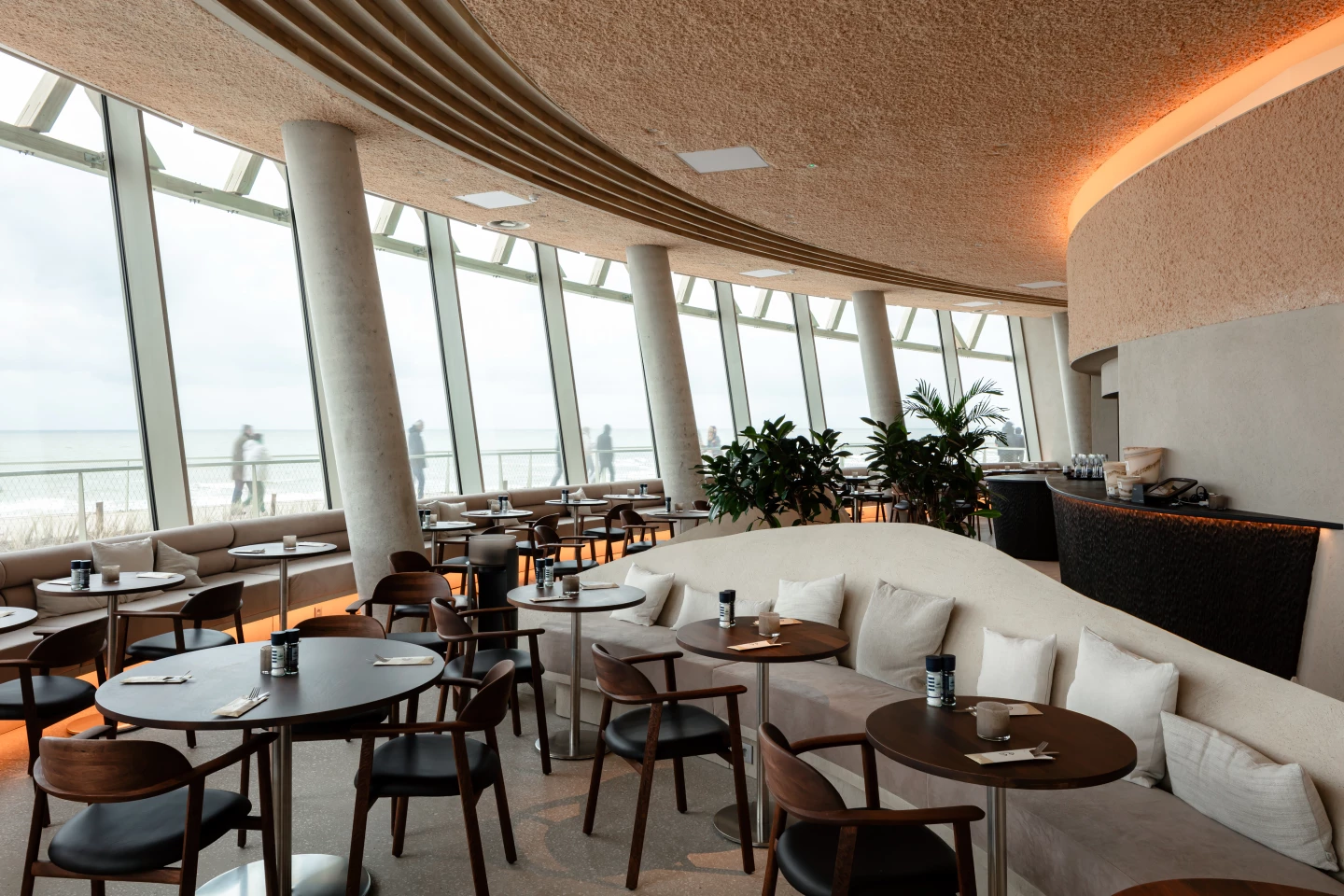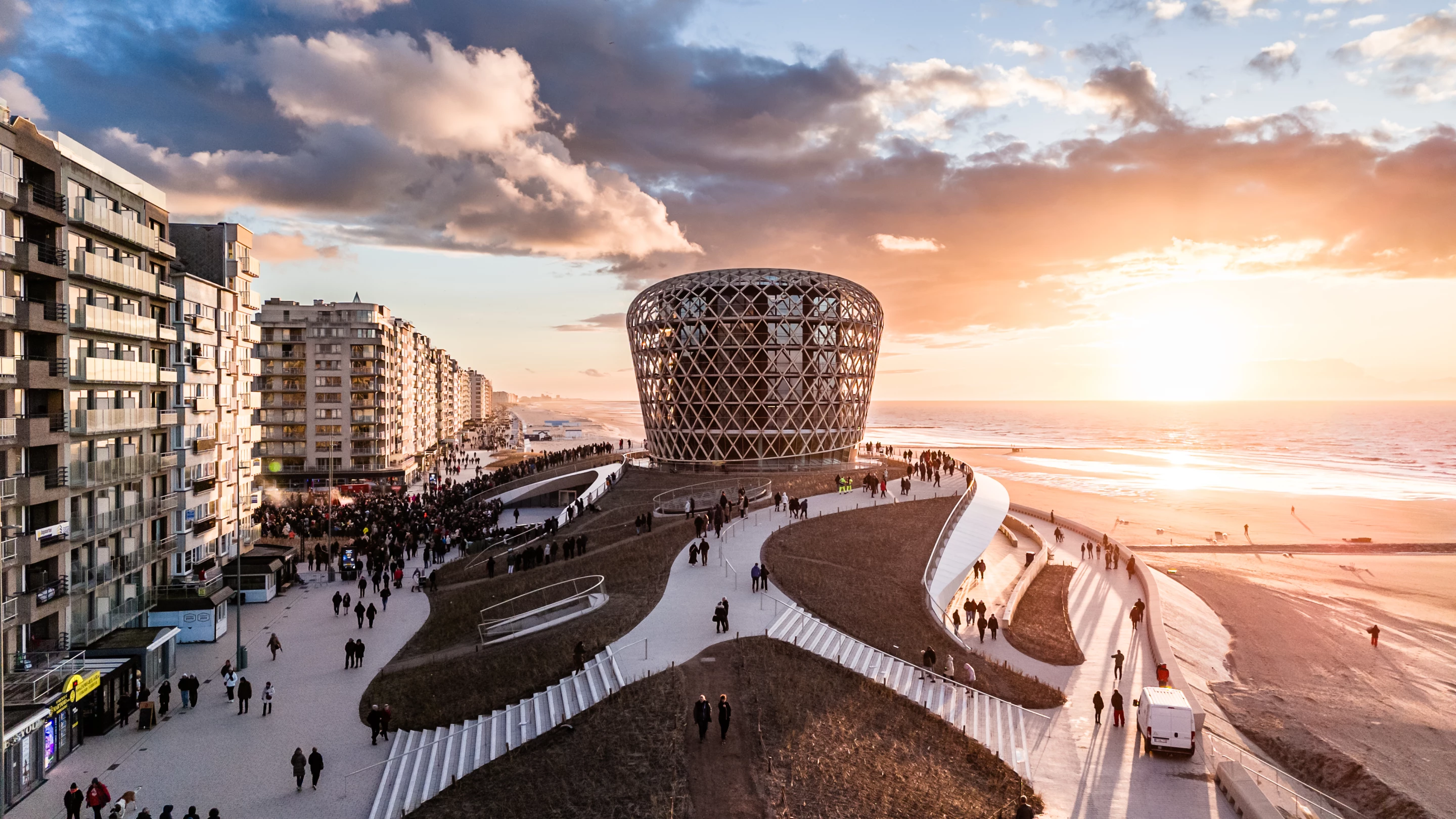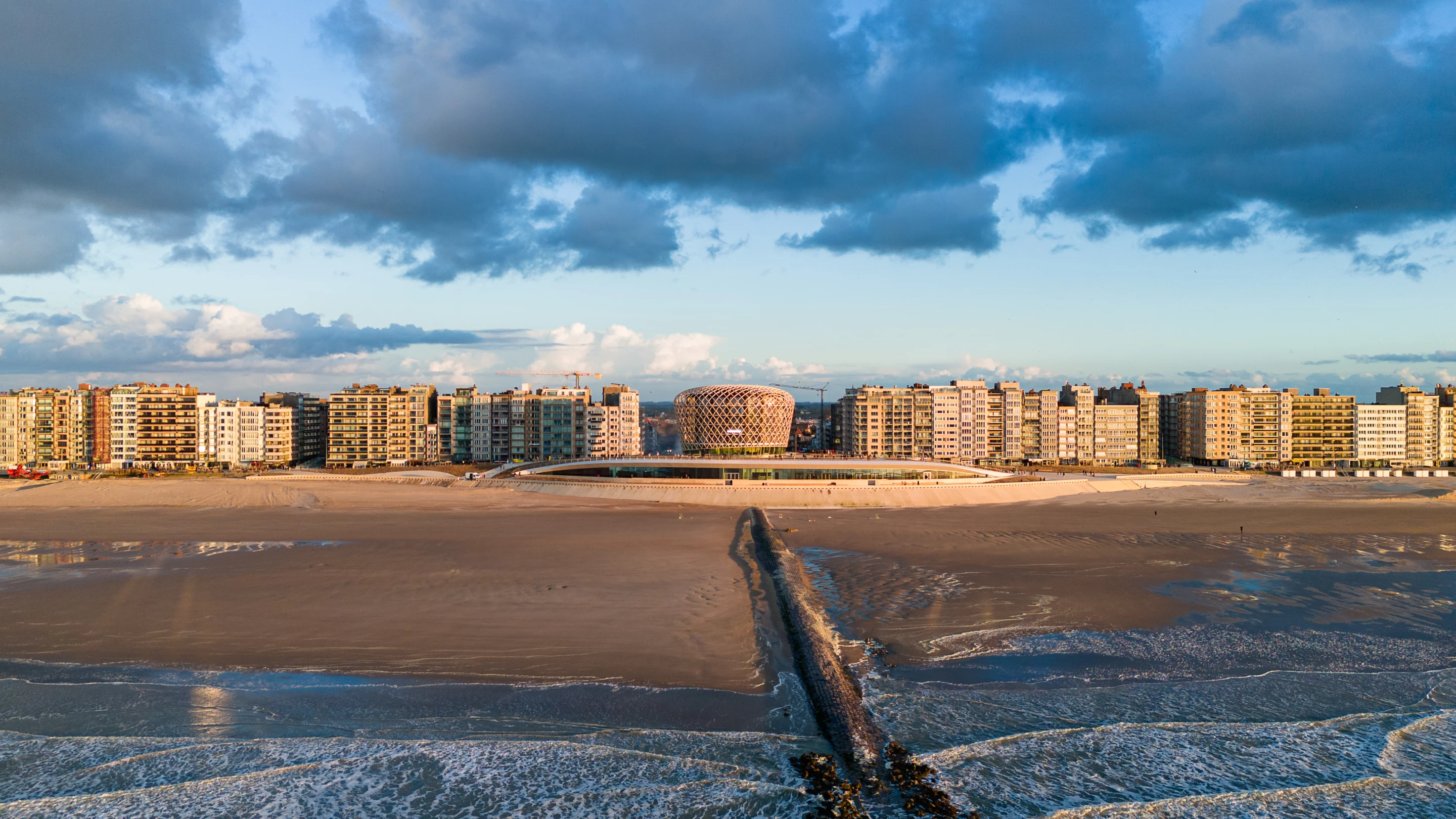Envisioned as a huge boulder rising out of an artificial sand dune, ZJA's Silt is now complete. The extraordinary building draws inspiration from the Belgian coastal landscape, and is designed to withstand a severe beating from nature, even in the face of rising seas and extreme storms.
First revealed back in 2020, Silt is partly inspired by Testerep, which in the Middle Ages was an island located a short distance off the coast of Middelkerke, Belgium. Over time it became connected to the mainland via a series of sea defenses and embankments.
The project forms part of a larger scheme to improve local defenses from the treacherous North Sea in Middelkerk and its striking appearance actually serves some practical purpose too. Its artificial dune base expands a nearby public square, offering superb views of the coastline. It hosts a casino, restaurant, and event space inside the dune-like building, while the tower section is made up of hotel rooms.
"The essence of the design lies in the integration of all the significant aspects, from the experience of the public to coastal reinforcement and economic impetus," explained ZJA. "With the once bleak Epernay Square as its center, the sea embankment and coastal defenses are now fused together, and an extensive new experiential landscape has arisen. Underground parking ensures that is a car-free zone, giving full scope to the public space above.
"The ground level is thus dedicated as a public space. Marram grass, the dune basin and sand channels leading to the beach give back to Middelkerke the characteristic landscape it holds dear. The climb to the top of the new dune offers breathtaking views and becomes a tourist attraction in its own right."

Structurally, Silt consists of a chunky concrete base, with the more eye-catching boulder-like section consisting of a concrete and glass tower enveloped by latticed beams of Accoya engineered wood, which was chosen for its hardiness. The tower section also features integrated lighting to make it glow pleasantly at night like a beacon.
ZJA says that thanks to its large sea wall and hardy construction, it can cope with extreme weather, including a once-in-a-thousand-year storm with very high waves and seawater rising over 2 m (6.6 ft) above its present level.

Silt was created in collaboration with Delva Landscape Architects, OZ, Bureau Bouwtechniek, and Bouwteam Nautilus. The entire thing went up quite quickly, taking around two years from initial excavations to opening day at the end of March.
Sources: ZJA, Delva Landscape Architects








